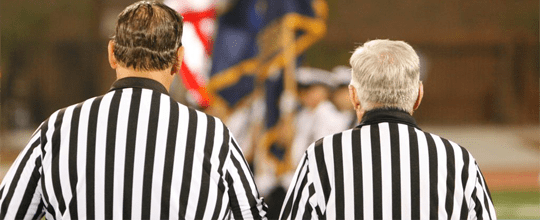While there are some SEO providers (such as ourselves) who consider what we do to be beneficial to the internet and “white hat”, there are others who do things that consist mainly of spam or “black hat” SEO methods. Google has always been against these methods since day one, however more recently they have taken a more aggressive approach to people trying to crack their algorithm and manipulate rankings.
Google’s algorithm is extremely complex, and part of the algorithm is what we consider a ranking penalty. There are three main forms of ranking penalties:
- Algorithmic Penalties: These are probably the most common and occur when the algorithm detects unusual behavior and penalizes a website ranking accordingly
- Panda Type Algorithmic Penalties: The Google Panda update runs every so often (typically every few months) and is a manually started algorithmic type penalty that detects low quality and duplicate content. It is unclear if there are other types of penalties that are run in such a way.
- Manual Penalties: Google tries extremely hard to work most things into their algorithm, but there are manual reviews by a human where they manually penalize your website.
There’s been quite a bit of buzz on the internet that in the first part of 2012 Google sent out over 700,000 notifications to webmasters that they were detected trying to manipulate their rankings. Many of these sites saw no penalty after such notifications, but some noticed sharp ranking drops for specific keywords and in the worst case scenarios for all their keywords.
Do I Have A Penalty?
Before we talk about what to do when you have a penalty, it’s important to first determine if you have a penalty. Google makes over 500 algorithm changes every year, and recently they have rolled out some pretty big updates in 2012. These updates have influenced rankings not from a penalty perspective but because Google has changed what they consider important factors in rankings. They have added spam fighting tools such as over anchor text optimization, devaluing links that are low quality, and other spam fighting measures.
If you’re noticed that your rankings have dropped across the board, it may not be a penalty but it may simply be due to these algorithmic changes. The best way in my opinion to determine if you have a penalty is to perform some quality SEO work and see if your rankings start to improve. If they do then you likely just need more quality SEO work to rank better again since these Google changes, but if your rankings don’t improve then you could have a penalty.
Are Penalties Permanent? Can You Recover?
I’ve seen quite a few penalties in my day. We do SEO experiments on test websites that we own and we have penalized some of them over the years. I’ve had clients come to me from other SEO providers who have numerous types of penalties, so I know first hand that penalties are a reality in the world of SEO.
Since I don’t have specific insights at Google or into their algorithm, it’s difficult to say the magnitude of a penalty. I’ve seen some penalties that last a few weeks, others that last a few months, and others that no matter what we do, we can’t seem to recover. In my opinion there are different degrees of penalties based on what Google detected, and you may or may not be able to get out of that penalty.
The best way to find out is to continue doing quality SEO work and see if your rankings improve. If after a reasonable amount of time they don’t, usually the best thing to do from an ROI standpoint is to drop that keyword and go after something else.
Remember, you aren’t in this to get top rankings for ego purposes, you’re in it to make money. So many people get caught up in the fact that they can’t get ranked for a keyword that they waste money trying to get ranked. If you have a penalty that you can’t get out of, then it’s time to likely just move on. And in some cases, I’ve seen people leave keywords alone for a long time and the penalty gets lifted.

 Menu
Menu 




